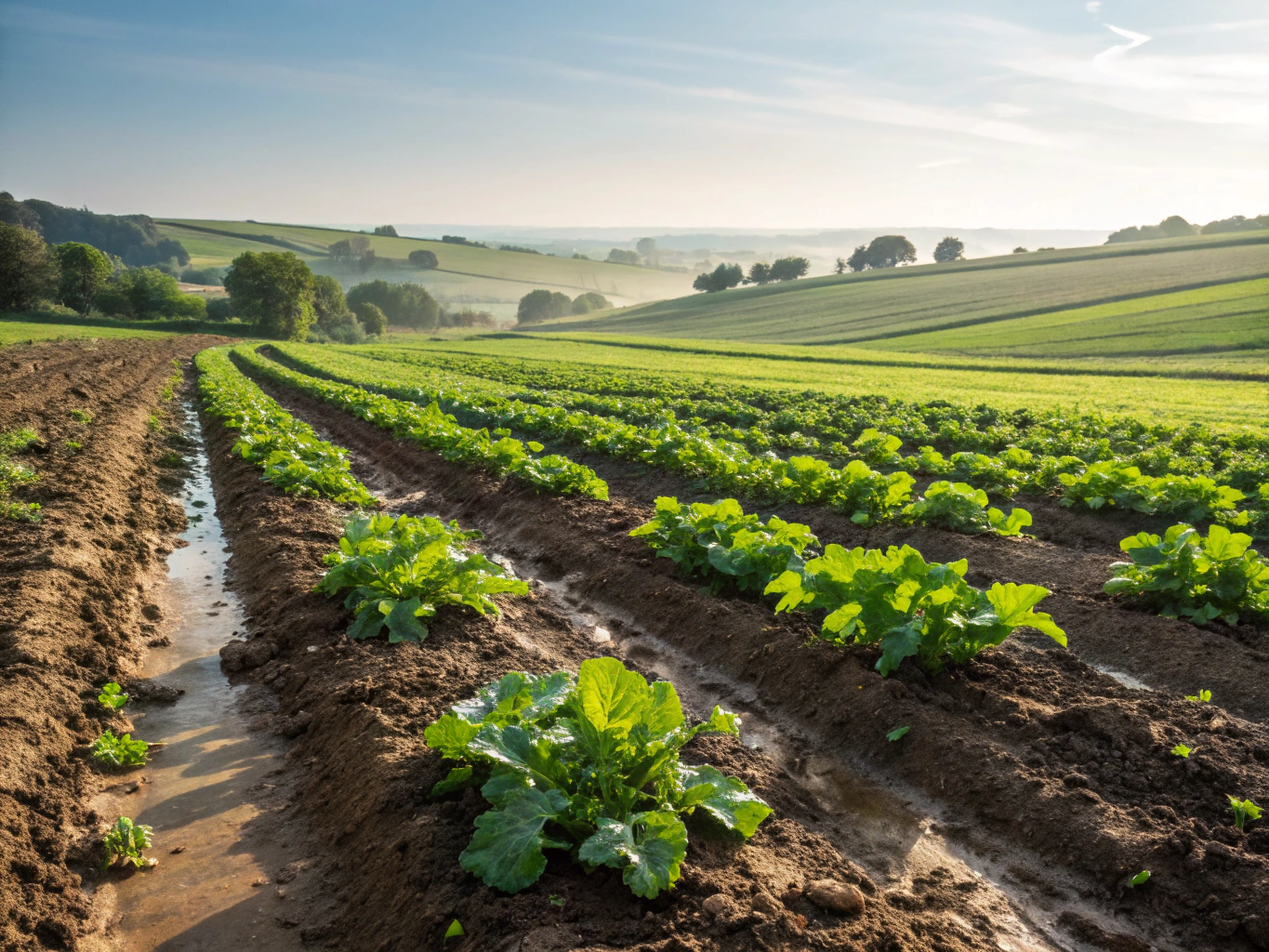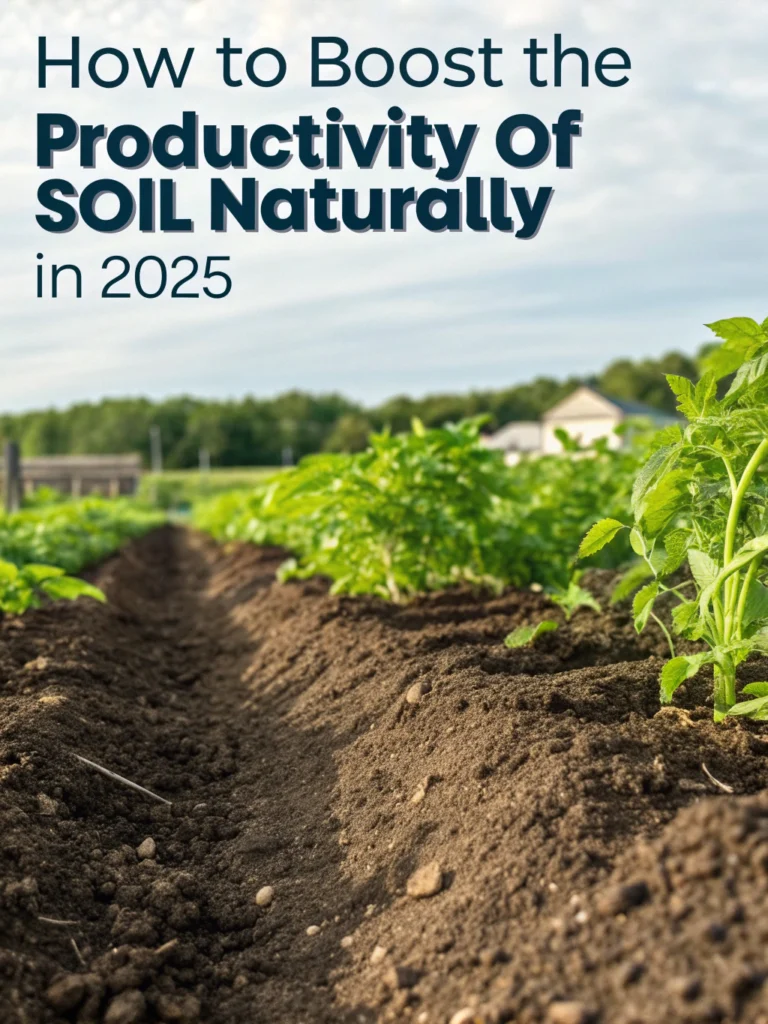How to Boost the Productivity of Soil Naturally in 2025
Soil is the backbone of agriculture. The productivity of soil is what determines how well crops can grow, and with increasing challenges like climate change and soil degradation, improving it naturally is more crucial than ever. In 2025, there are plenty of natural ways to boost soil output that every farmer should consider. This article dives into effective strategies to improve soil fertility naturally and secure better harvests.
Understanding Soil Productivity in 2025
As we step into 2025, the focus on soil productivity has gained momentum. With the constant push for sustainability, it’s time to embrace methods that enhance the earth's natural capabilities rather than exploit them. Rather than relying on synthetic fertilizers, implementing sustainable soil productivity methods will lead to healthier crops and richer ecosystems. So, what are some ways to partner with nature?
1. Organic Soil Enhancement Tips
Organic matter plays a critical role in enriching soil. Here are some tips you can use:
-
Compost: Create a compost pile with kitchen scraps, leaves, and grass clippings. This enriches the soil with nutrients.
-
Green Manures: Plant cover crops like clover or vetch during the off-season. When turned into the soil, these crops serve as a nutrient boost.
-
Mulching: Adding organic mulches, like straw or wood chips, helps conserve moisture and suppress weeds while enriching soil as they decompose.
2. Natural Fertilizers
Utilizing organic fertilizers is a game-changer:
-
Manure: Well-rotted manure is rich in nutrients and improves soil structure.
-
Fish Emulsion: This liquid fertilizer is great for fast-acting nourishment.
-
Bone Meal: A slow-release source of phosphorus, perfect for root development.
3. Effective Crop Rotation
Rotating your crops helps break pest and disease cycles:
-
Alternate deep-rooted crops with shallow-rooted ones.
-
Include legumes in the rotation, as they fix nitrogen in the soil.
4. Promote Soil Biodiversity
Encouraging beneficial soil organisms is vital:
-
Earthworms: These little creatures aerate the soil and produce nutrient-rich castings.
-
Microbial Activity: The healthier the microbial life in your soil, the better the nutrient uptake will be. Use mycorrhizal fungi to enhance nutrient absorption.
5. Eco-friendly Soil Improvement Techniques
Implementing eco-friendly practices can greatly benefit soil productivity 2025:
-
Limit tillage to preserve soil structure and organisms.
-
Utilize biochar, which can enhance soil fertility and sequester carbon.
-
Intercrop with flowers to attract beneficial insects for natural pest control.
Conclusion: The Future of Soil Productivity
We can't emphasize enough; focusing on the productivity of soil is not just an option—it's a necessity. The practices outlined above are tailored for the modern farmer looking for ways to increase farm yield naturally. Each method contributes towards a sustainable future, ensuring we nurture our planet while reaping its rewards.
For those diving deeper into productivity, consider enhancing your strategies with the AI for Productivity eBook + Checklist: Supercharge Your Efficiency in 2025. This resource is packed with insights that can elevate your operational efficiency in various fields, including agriculture. Check it out here AI for Productivity eBook + Checklist: Supercharge Your Efficiency in 2025.
Lastly, if you’re looking to enhance your focus and organization, check the ADHD Productivity Power Pack: Ebooks, Guides, Checklists, Workbook & Tools to Master Focus, Time Management & Organization. This can greatly boost your overall productivity. Explore the bundle here ADHD Productivity Power Pack: Ebooks, Guides, Checklists, Workbook & Tools to Master Focus, Time Management & Organization.

FAQs
Q: How can I improve soil productivity naturally?
A: Utilize organic matter, practice crop rotation, and encourage biodiversity.
Q: What are some eco-friendly soil improvement techniques?
A: Implementing no-till farming, using cover crops, and applying compost are effective methods.
Q: Why is soil fertility important?
A: Healthy soil fertility directly impacts crop yield and sustainable farming practices.
Each of these strategies is essential to support the productivity of soil not only in 2025 but well into the future. Explore these methods and be a part of a sustainable agricultural transformation!

